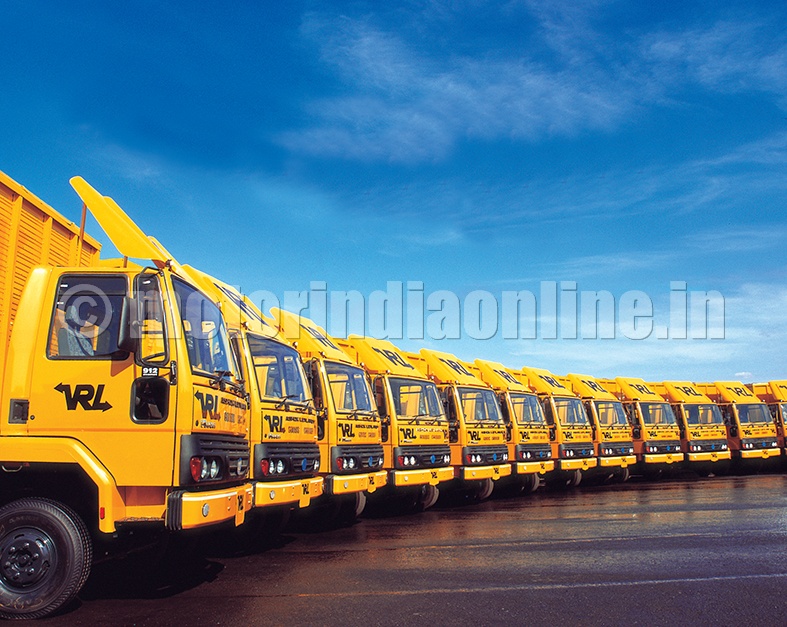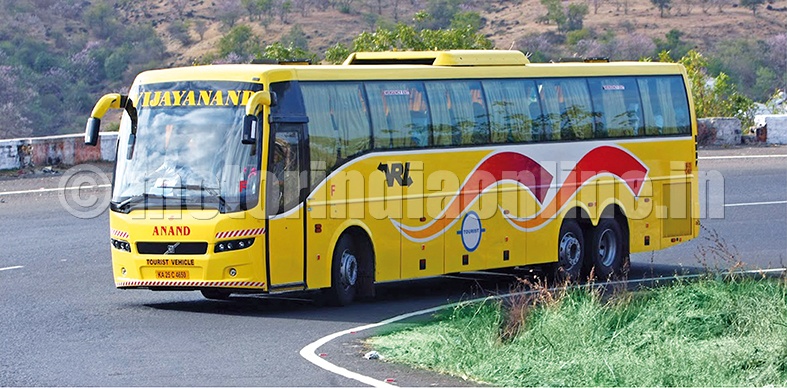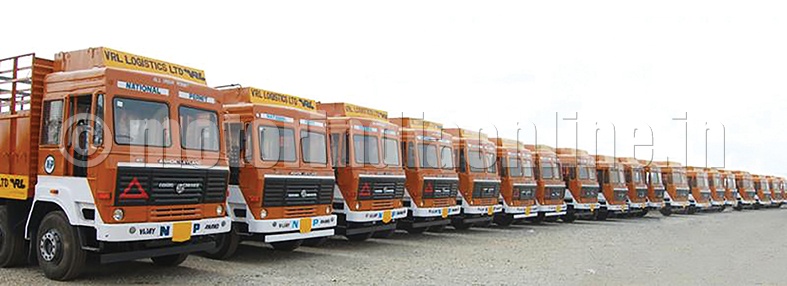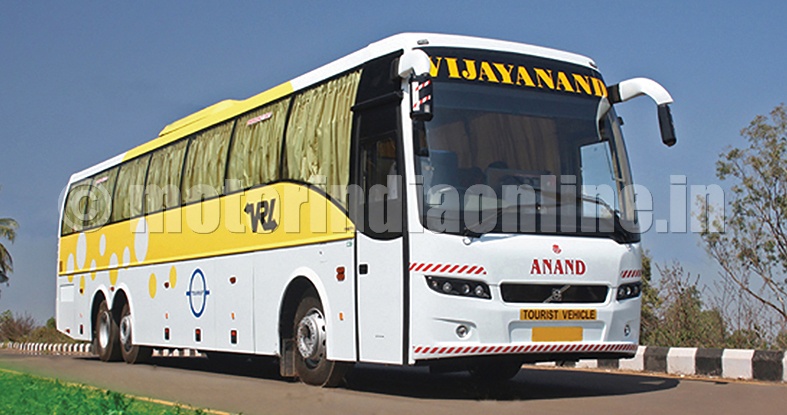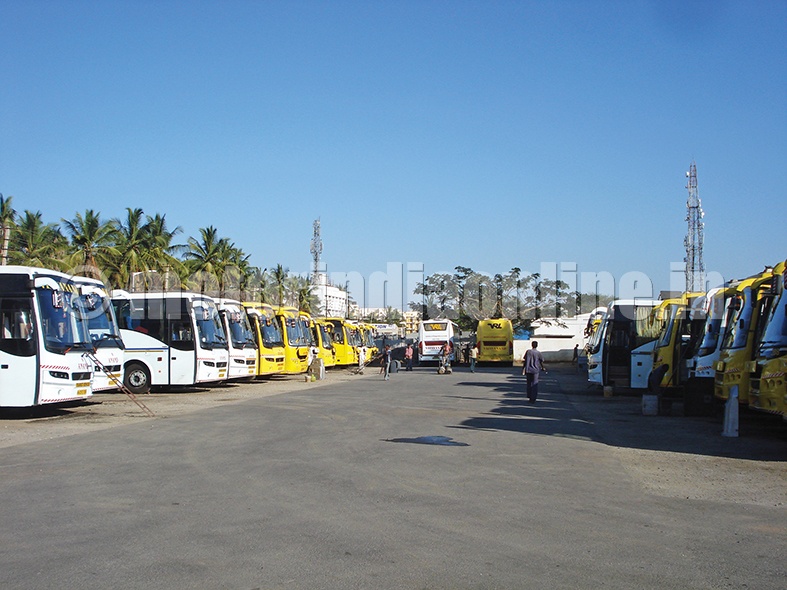The domestic freight transportation services industry is largely dominated by road transport. However, this segment is highly fragmented with a large number of small players and a few organized ones. This provides consumers with high bargaining power and intensifies competition among them. The industry broadly comprises transport operators, intermediaries, brokers and consignors or end-users. India spends around 14.4 per cent of its GDP on logistics and transportation as compared to less than 8 per cent spent by the other developing countries.
The Indian freight transport market which is expected to grow at a CAGR of 13.35 per cent, driven mostly by the growth in the manufacturing, retail, FMCG and e-commerce sectors. The freight transport market in India will be worth $307.70 billion by 2020. In India road freight constitutes around 63 per cent of the total freight movement consisting of 2.2 million heavy duty trucks and 0.6 million light duty trucks covering more than 18,00,000 km of road length carrying more than 3000 MMT of load annually.
VRL Logistics is a well-established brand in the country when it comes to surface transportation as well as a leading name amongst private bus operators. With a remarkable track record for over three decades, VRL has increased its scale of operations and operates across the length and breadth of India while also entering wind power generation and air charter businesses.
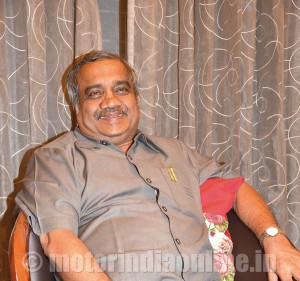
Goods transportation business
VRL offers services for transportation of goods across India using a range of road transportation solutions to its customers, including less than truck load (LTL), full truck load (FTL) and priority services. The goods transport business is broadly divided into General Parcel and VRL Priority. General Parcel basically caters to godown-to-godown movement of consignments across the country and is mainly used by wholesalers, retailers and other non-corporate entities. VRL Priority caters to door-to-door movement of consignments, and this service is mainly availed of by corporates.
The other verticals include car carrying, liquid transportation and courier activities. The company owns 3500 plus vehicles complemented by a large number of outside vehicles used for goods transportation. The network spans 28 States, four Union Territories and covers nearly all major cities and towns throughout India.
VRL Logistics has an extensive network with nearly 1000 branches and franchisees that enables it to provide connectivity to even remote locations. The branch network is further complemented by 48 strategically located transhipment hubs.
The company’s goods transportation business services numerous industries. It transports fast moving consumer goods and general commodities, including food, textile, apparel, furniture, appliances, pharmaceutical products, rubber, plastics, metal and metal products, wood, footwear and machinery.
Bus operations business
In the passenger transportation business, VRL is a private operator of passenger buses and its operations are focused on high density urban commuter markets such as Bangalore, Mumbai, Pune, Hyderabad, Ahmedabad, Jodhpur, Panjim and Jalore. It also connects metropolitan and Tier-II cities such as Hubballi, Vijaypur, Dharwad, Belgavi, Hospet, Mangalaru, Bagalkot, Kalburgi and Bhatkal.
VRL has pioneered the country’s largest commercial bus route of nearly 2,000 km, from Bangalore to Jodhpur. The passenger transportation business operates in Karnataka, Maharashtra, Andhra Pradesh, Telangana, Tamil Nadu, Gujarat, Rajasthan and Goa. VRL facilitates booking of tickets for its passengers through a wide network of agents as well as the Internet through leading web-based travel agents and the online ticket booking facility on its website. Passengers can avail very attractive discounts by booking their tickets online.
VRL operates exclusively through its owned fleet of nearly 375 buses, which includes the latest state-of-the art Multi Axle Volvo seater buses, Multi Axle Volvo I-shift sleeper buses, Isuzu seater buses, Non-Volvo A/c sleeper, sleeper buses and semi-sleeper buses. This division operates through 86 company-owned branches, 728 franchisees, including web agents, and 339 prepaid agencies across this network.
VRL has invested heavily in technology to keep abreast of the latest market trends and has continuously upgraded its technology. It has its in-house technology innovation team. Most of the hardware and software used is developed by its own IT professionals. Usage of CCTV in buses to prevent theft and to provide secured service to customers, etc., are the technologically advanced services.
Growth in FY14-15
During 2014-15, VRL Logistics recorded revenues of Rs. 1,678.86 crores as against the previous year’s of Rs. 1,503.77 crores, representing a growth of 11.64 per cent. It earned profit before tax (PBT) of Rs. 137.90 crores (Rs. 76.76 crores).
The overall performance of the company improved in the current year in comparison with the earlier performance led by the bus division. Goods transportation revenues recorded a growth of 13.88 per cent and was Rs. 129,075.24 lakhs as against Rs. 113,342.60 lakhs corresponding to the previous fiscal. The growth is the result of an increase in volume as well as freight rates. It is also attributable to the branch expansion that VRL undertook last year. In 2014-15, the company opened 71 new branches in the country.
The bus operations division recorded revenues of Rs. 33,157.39 lakhs as against Rs. 30,912.55 lakhs for the earlier year, clocking a growth of 7.26 per cent. This was despite a drastic reduction in the fleet size, wherein the present-day fleet comprises around 375 vehicles as against the fleet size of 475 buses during the earlier year.
In the current year the company has undertaken consolidation in this segment and has consciously not replaced the permit expired vehicles with new ones. The company operated the existing vehicle fleet over the premium and high demand routes which resulted into improved passenger realization and occupancy levels.
Business expansion
VRL plans to expand its goods transport business in the eastern and north eastern parts of the country. Operations of the Nepal office are expected to commence shortly and the company is also looking at servicing the north-eastern States where its presence is absent or is minimal.
The company can also look at investing in cost-saving measures such as dedicated fuel stations as also weigh bridges at these locations. An addition to the fleet would also be called for considering the expected rise in business volumes arising out of the growth opportunity that GST presents. Increased vehicle fleet would provide greater operating flexibility, as also reduce dependency on outside vehicles at key locations. The addition to the fleet is expected to be the addition of the higher capacity vehicles that would also reduce the driver related costs on a per kg basis owing to larger per vehicle capacity.
“I believe that a lot of opportunities awaits organized transporters like us. Implementation of the GST is now imminent and would boost up volumes for surface transporters operating within the country with a pan-India presence”, said Dr. Vijay Sankeshwar, Chairman & Managing Director, VRL Logistics Ltd., in the company’s annual report for FY14-15.
The Government has proposed a new Road Safety and Transport Bill, 2014, to amend the existing Motor Vehicles Act, 1988 (Transport Bill) which seeks to provide a framework for safer, faster, cost-effective and inclusive movement of passengers and freight in the country. It seeks to promote innovation and improved technology and vehicle design for safer travel and also provides for a unified vehicle registration system with integration of all stakeholders such as manufacturer, owner, transport authorities, insurer and enforcement authorities and also proposes a simplified system of permits and single portal clearances for the goods transportation Industry. The Transport Bill also proposes a two-tier system, at the national and the intra-state levels for the passenger transportation industry, to develop and regulate various public passenger transport schemes.
“The proposed new Road Safety and Transport Bill, coupled with the other initiatives announced by the Government such as Make in India and the Smart Cities concept, promise a lot of business activity in the days to come, and the need for surface transportation for all businesses is inevitable. We await the implementation of these positive initiatives”, the CMD added.
All eyes on GST
Another important regulation awaited by the entire industry is the implementation of GST from the next fiscal, anticipating which several bodies have indicated that road transportation is expected to be grow faster. This growth rate is based on the expectation that the Government will soon implement GST and that the logistics companies can optimize operations to reduce the cost and increase margins. With GST, the logistics companies which are currently forced to set up many small warehouses across multiple cities can set up just a few, big warehouses region wise and can follow the hub-and-spoke model for freight movement from the warehouses to the different manufacturing plants, wholesale outlets, retail outlets and the various point of sale.
This has increased the service geography of the logistics firms but they also have to meet the demands of quick delivery and tight service level agreements. VRL Logistics is well positioned to benefit from such implementation and already holds leadership position in the LTL freight movement in India.
Industry reports suggest that the Indian logistics industry spends as a percentage of the GDP on different types of cost incurred in logistics operation is very high in comparison to the logistics cost incurred by different nations. The logistics firms are moving from a traditional setup to the integration of IT and technology for its operations to reduce the costs incurred as well as to meet the service demands. The industry as a whole has moved from being just service provider to the position where they provide end to end supply chain solutions to the customers.
The other Government initiatives such as Make in India and development of Smart Cities across India definitely points to additional business in the days to come which is expected to benefit one and all in the Industry. VRL Logistics, being one of the leading organized players in the industry, stands to gain from the implementation of these initiatives and is hopeful of growing stronger in the coming years.
